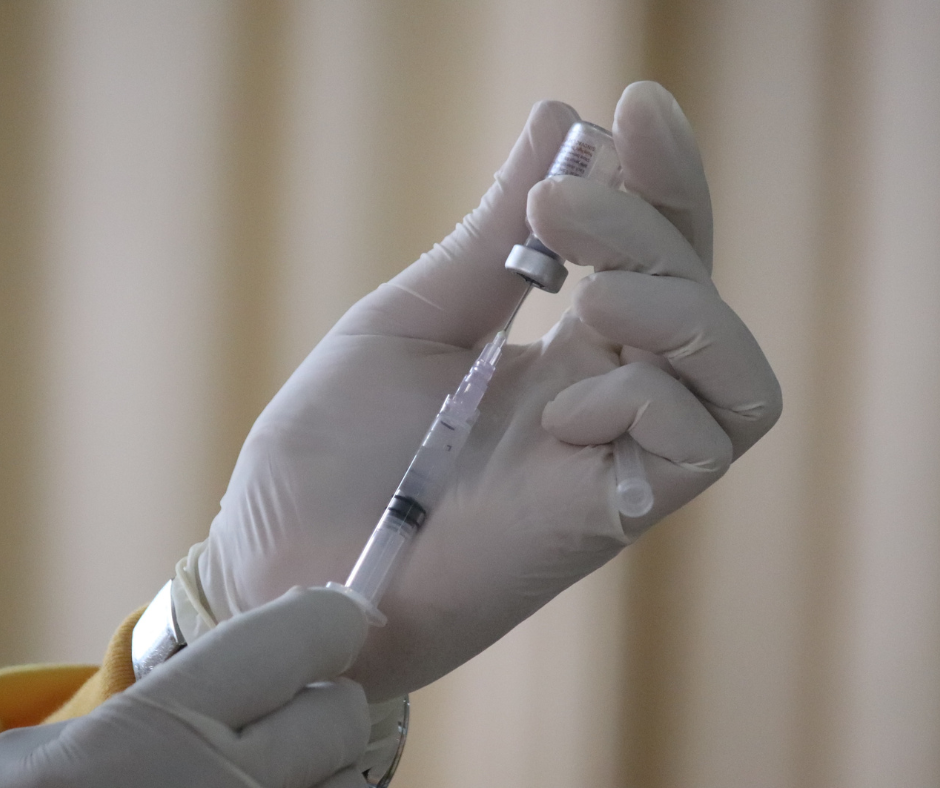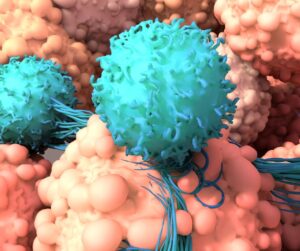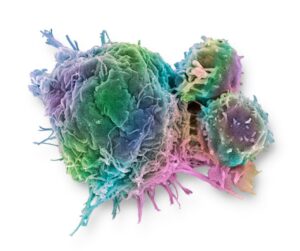Abigail Shockley, PharmD
Chimeric antigen receptor T (CAR-T) therapies have resulted in durable remissions for patients with refractory hematologic malignancies; however, patients can experience many side effects following administration. Cytokine release syndrome (CRS) occurs as a result of rapid immune activation induced by CAR-Ts and is one of the most significant treatment-related toxicities associated with CAR-T cell therapy.1 Prior to administration of CAR-T cell therapy, manufacturers require institutions to have at least 2 doses of tocilizumab (Actemra, Genentech) on hand for each patient for management of CRS. Tocilizumab is an interleukin-6 (IL-6) receptor antagonist, and, upon administration, tocilizumab leads to a reduction in circulating cytokines.2 Recently, tocilizumab was approved for the treatment cytokine release secondary to COVID-19.2 Since this approval, tocilizumab has been on shortage due to the increased demand. Siltuximab (Sylvant, EUSA Pharma) and anakinra (Kineret, Sobi) have both been postulated for use in management of CRS.
Siltuximab works by binding with high affinity to IL-6 and prevents IL-6 from binding to its receptor, thus lowering IL-6 levels in the body.3 It is currently approved for use in adult patients with multicentric Castleman disease (MCD) who are human immunodeficiency virus (HIV)-negative and human herpes virus type 8 (HHV-8)-negative.3 Off-label use of siltuximab has been postulated for use in cytokine release syndrome (CRS) as a second- or third-line agent in grade 4 refractory CRS following CAR-T cell therapy, after tocilizumab and corticosteroids.1 Siltuximab use has been reported in 2 pivotal trials, ZUMA-3 and ZUMA-4; however no data is available regarding its use. Two case reports have documented its use in refractory CRS, the patients died shortly after, likely due to delayed administration and disease progression.4,5 Additionally, the CAR-T-cell-therapy-associated TOXicity (CARTOX) working group recommends use of either tocilizumab or siltuximab for persistent CRS, defined as lasting greater than 3 days.6
Anakinra is an interleukin-1 (IL-1) receptor antagonist, which upon administration, leads to a reduction in circulating cytokines.7 It is currently approved for IL-1 deficiency, frequent gout flares, and rheumatoid arthritis.7 Similar to siltuximab, its off-label use for CRS has been postulated. In a study done by Strati and colleagues, 6 patients were treated with anakinra first-line for CRS and 4 had clinical benefit.8 Additionally, in another study, anakinra was administered to patients after grade ≥2 and no patients experienced grade escalation.9
While there is not robust literature validating the place in therapy of siltuximab or anakinra for CRS management, guidelines do list these agents as a potential last-line option in tocilizumab-refractory CRS.1 In the setting of tocilizumab shortage, siltuximab and anakinra remain promising options to alleviate CRS; however, it is still recommended to obtain tocilizumab prior to initiation of CAR-T-cell therapy and utilize the supply as first-line prior to initiation of these agents.
- National Comprehensive Cancer Network. Management of Immunotherapy Related Toxicities. (Version 3.2021). https://www.nccn.org/professionals/physician_gls/pdf/immunotherapy.pdf. Accessed August 27th, 2021
- Tocilizumab. Lexi-Drugs. Lexicomp. Wolters Kluwer Health, Inc. Riverwoods, IL Accessed August 27, 2021
- Siltuximab. Lexi-Drugs. Lexicomp. Wolters Kluwer Health, Inc. Riverwoods, IL Accessed August 27, 2021
- Turtle CJ, Hay KA, Hanafi LA, et al. Durable Molecular Remissions in Chronic Lymphocytic Leukemia Treated With CD19-Specific Chimeric Antigen Receptor-Modified T Cells After Failure of Ibrutinib. J Clin Oncol. 2017;35(26):3010-3020. doi:10.1200/JCO.2017.72.8519
- Vithlani, S. Evidence for use of siltuximab or anakinra as second line therapies (after failure of tocilizumab) for Cytokine Release Syndrome (CRS) following use of Chimeric Antigen Receptor T-cell (CAR-T) therapy [Internet]. London Medicines Information Service. [updated Feb 2020; cited 2020 May 20]. Available from: https://www.sps.nhs.uk/articles/evidence-for-use-of-siltuximab-or-anakinra-as-second-line-therapies-after-failure-of-tocilizumab-for-cytokine-release-syndrome-following-use-of-chimeric-antigen-receptor-t-cell-car-t-therapy/
- Neelapu SS, Tummala S, Kebriaei P, et al. Chimeric antigen receptor T-cell therapy – assessment and management of toxicities. Nat Rev Clin Oncol. 2018;15(1):47-62. doi:10.1038/nrclinonc.2017.148
- Anikinra. Lexi-Drugs. Lexicomp. Wolters Kluwer Health, Inc. Riverwoods, IL Accessed August 27, 2021
- Strati P, Ahmed S, Kebriaei P, et al. Clinical efficacy of anakinra to mitigate CAR T-cell therapy-associated toxicity in large B-cell lymphoma. Blood Adv. 2020;4(13):3123-3127. doi:10.1182/bloodadvances.2020002328
- Caspian Oliai, Anna Crosetti, Sven De Vos, et al. IL-1 receptor antagonist for prevention of severe immune effector cell-associated neurotoxicity syndrome. Journal of Clinical Oncology 2021 39:15_suppl, 7566-7566

Abigail Shockley, PharmD
PGY2 Oncology Pharmacy Resident – MUSC College of Pharmacy, Affiliate Instructor – Medical University of South Carolina







